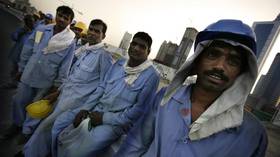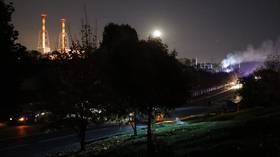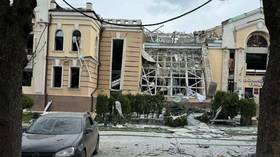Zombie apocalypse now: Here’s where to hide if a global pandemic breaks out, study says

We all hope it doesn’t come to this, but let’s face it, it’s better to be prepared. New research claims to have identified the ‘top 20’ locations you should aim for if a human extinction-level pandemic breaks out.
Public health doctors based in New Zealand (which, spoiler alert, is the second-best place to be if there’s a massive disease outbreak internationally) used a range of strict criteria to narrow down the options. Smaller islands were out of the running because they lack the wide range of expertise necessary to support a modern civilisation.
Also on rt.com A little creepy? Russian company starts mass production of humanoid robots that can look like youAny potential refuge site also had to meet conditions regarding its distance from other land masses, its natural hazards, available resources, and the number of visitors they receive per year. Social stability was also a key factor. The researchers, Professor Nick Wilson and Dr Matt Boyd, allocated points for each element to devise their shortlist of ideal candidates.
Published in Risk Analysis journal, their research found Australia to be the best location for riding out a global pandemic, thanks chiefly to its abundance of energy and food. Filling out the top five were: New Zealand, Iceland, Malta and Japan.
Boyd, the paper’s lead author, said the “worst-case scenario” would be deadly genetically-engineered organisms being accidentally or intentionally released by humans, and “we need to be ready for these situations.”
Also on rt.com The end is nigh: Scottish cops blasted for panic-inducing ‘preparedness bag’ tweetHowever unlikely such a widespread disaster is, Wilson agrees it’s important to think ahead – just in case: “It’s like an insurance policy. You hope that you never need to use it, but if disaster strikes, then the strategy needs to have been in place ahead of time.”
Think your friends would be interested? Share this story!















